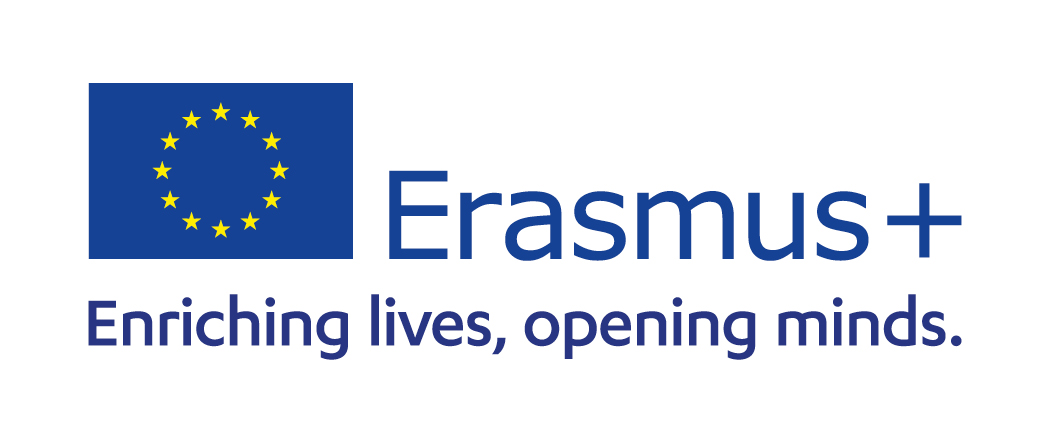The amount of money that you can get on the Erasmus+ programme depends on two main factors. The first is the country that you are planning to study or train in, and the second is how long you are going to be there for.

All of the countries in the Erasmus+ programme are split into three categories. The categorisation is based on the estimated living costs in a specific country. Countries are deemed to have high living costs, medium living costs or low living costs. The amount of money available on Erasmus+ is more if you are going to a country with high living costs, and lower for the other two.
The rate is set on a monthly basis. So, the longer you are staying abroad, the more money you will get in total.
For example, a student from Germany travelling to the UK to study can expect to receive 270 Euro a month. This is because the UK is one of the 10 countries that are deemed by the Erasmus+ programme to have high costs of living. If the student stayed for the maximum length of time - 12 months – he or she would receive a total of 3.240 Euro. If that same student decided to go to Poland instead, they would receive 150 Euro per month, which would work out at 1.800 Euro if their programme lasted for a year. This is because Poland is one of the 10 countries in the third group, which is categorised as having low living expenses. There are 12 countries in the middle group.
At present, the bands range from 150 Euro up to 390 Euro per month. These bands are recalculated every year, though.
Erasmus+ grant amounts for 2014-2015
The grants are set each year by the Erasmus National Agency. Here are the bands for the 2014-2015 academic year.
| COUNTRY GROUP | MONTHLY RATE FOR STUDIES | MONTHLY RATE FOR INTERNSHIPS |
|---|---|---|
| Group 1: Austria, Denmark, Finland, France, Ireland, Italy, Lichtenstein, Norway, Sweden, United Kingdom | 270 Euro | 390 Euro |
| Group 2: Belgium, Croatia, Cyprus, Czech Republic, Germany, Greece, Iceland, Luxembourg, Portugal, Slovenia, Spain, Turkey | 210 Euro | 330 Euro |
| Group 3: Bulgaria, Estonia, Hungary, Latvia, Lithuania, FYR of Macedonia, Malta, Poland, Romania, Slovakia | 150 Euro | 270 Euro |
The amount of money in these bands is not designed to cover the full cost of living in the host country that you are travelling to. Instead, it is for additional costs that are incurred when studying abroad. This means you will have to have other sources of money. For example, your normal student loan or maintenance grants.
How the payments are made?
While Erasmus+ grants are calculated on a monthly basis, they are not paid monthly. Instead, they are paid in lump sums. Some universities pay in three instalments, but the majority pay in two. They take the total amount of the grant and pay 80 percent of it to you in the first instalment. There are certain requirements you have to fulfil before this can happen, though.
The first of those requirements is that you need to have submitted your grant contract. You also need to provide your bank details - all of the grants are paid by bank transfer, so you will need a bank account and you will need to give the institution your IBAN number. Also, some universities do not pay the grant into foreign bank accounts, so you might have to open an account in the same country as the university you are travelling to study in if you do not have one already. Finally, you have to submit a learning agreement. The learning agreement ensures that you receive proper recognition in your degree for the time that you spend studying abroad.
The first instalment of your Erasmus+ grant is usually paid in early October, with the remain 20 percent of the balance being paid several months later. There are some requirements that have to be met in order to qualify for the second allocation of the grant. This includes providing certification of stay as well as an Erasmus Report Form.
Failing to meet the criteria can result in a requirement to repay the grant. Plus there is a requirement at the end of the study period in regard to language. Helping students to develop skills in languages other than their own is one of the purposes of Erasmus+, so there is a before and after assessment as part of the programme.
Finally, there is no requirement to pay tuition fees when you are studying abroad on the Erasmus+ programme. In particular, the host institution will not charge you fees. The only thing you might have to pay, depending on the institution, is an enrolment fee. Also, your home institution will usually not charge while you are away if you are spending the full academic year abroad. So the probability is that you will not have to pay any tuition fees during the time that you are on a 12 month Erasmus+ programme.



